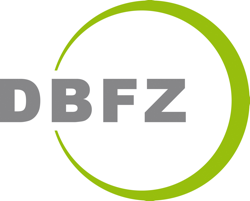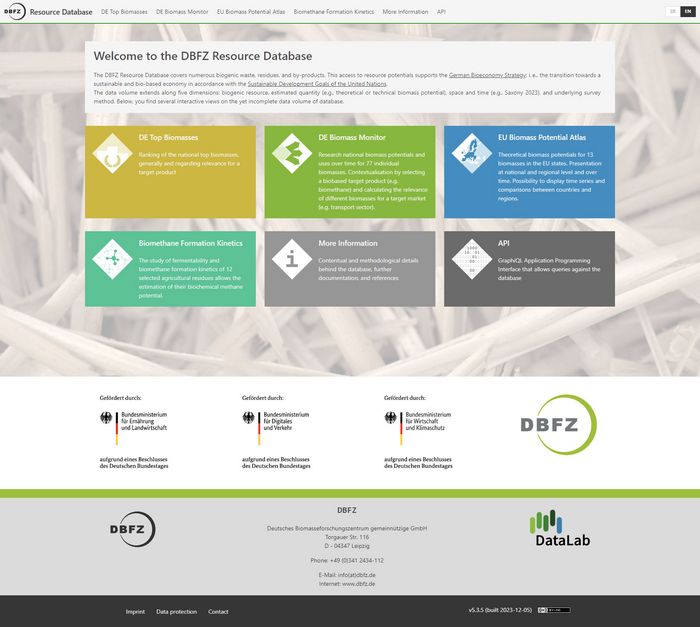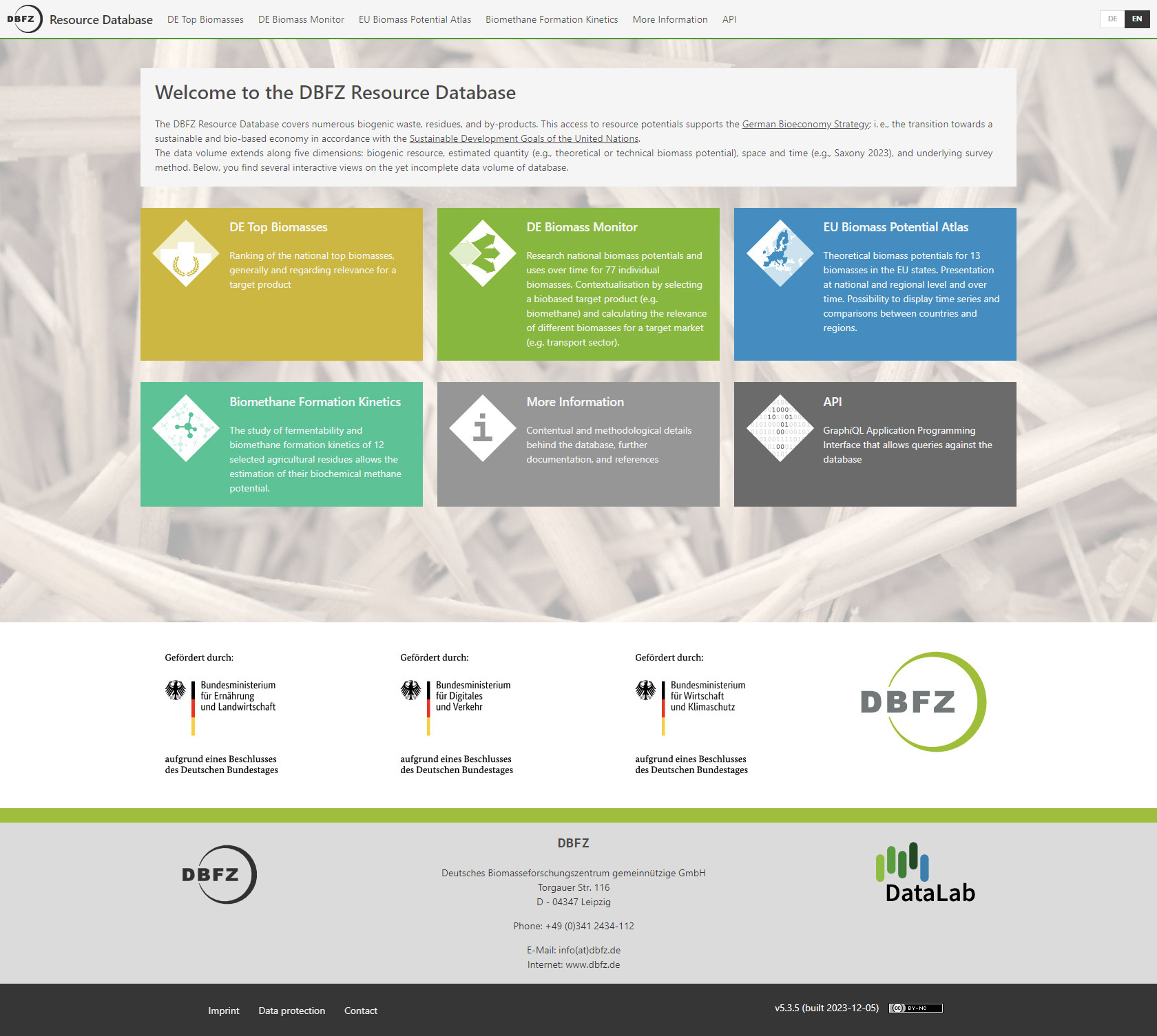Potential of waste and residues: DBFZ publishes database on available resources in Germany and the EU
Biogenic waste and residues hold growing potential for a sustainable and bio-based economy. Until now, freely available and systematically processed data was not fully available. In the revised DBFZ resource database, scientists from the DBFZ present comprehensive data on biomass potentials for Germany and the EU. The database provides detailed information on the availability of various biomasses, including biowaste from private households, cereal straw and industrial residues. The web application is available to researchers, political representatives, companies and all interested parties at www.dbfz.de/en/resource-database.
Designed as an open source application as part of the DBFZ data laboratory, the completely revised DBFZ database offers a wealth of content and functions. For example, top biomasses in Germany can be determined via an improved navigation structure. Comprehensive information on input materials for energy and material use can be read quickly and intuitively via time series, and a biomass potential atlas can be used to trace the development and potential of individual biomasses throughout the EU back to 2010.
Defined data results can be displayed both graphically and in tabular form and integrated into external web applications via a digital interface (API). "The DBFZ resource database is the result of lengthy deliberations on how we can bring together findings from various research projects in a meaningful way. Our aim with the portal is to provide a long-lasting and scientifically sound information tool. We want to support researchers, politicians and companies in using available resources efficiently," says Jasmin Kalcher, co-developer at the DBFZ.
Background paper on waste and residues
In addition to the database, the background paper "Biomass potentials of waste and residues" has also been published. This paper provides an overview of the methodology used to determine the biomass potential of waste and residual materials in Germany and at the same time highlights the integration of the results into the database. The paper places imports of biomass in its context, discusses driving forces and expected competition for the use of resources. The background paper can be found at https://doi.org/10.5281/zenodo.10404436.
Further information:
https://www.dbfz.de/en/resource-database
https://datalab.dbfz.de/home/?lang=en
Smart Bioenergy – innovations for a sustainable future
The DBFZ works as a central and independent thinker in the field of energy and material use of biomass on the question of how the limited available biomass resources can contribute to the existing and future energy system with sustainability and high efficiency. As part of the research the DBFZ identifies, develops, accompanies, evaluates and demonstrates the most promising fields of application for bioenergy and the especially positively outstanding examples together with partners from research, industry and public. With the scientific work of the DBFZ, the knowledge of the possibilities and limitations of energy and integrated material use of renewable raw materials in a biobased economy as a whole should be expanded and the outstanding position of the industrial location Germany in this sector permanently secured – www.dbfz.de/en.


